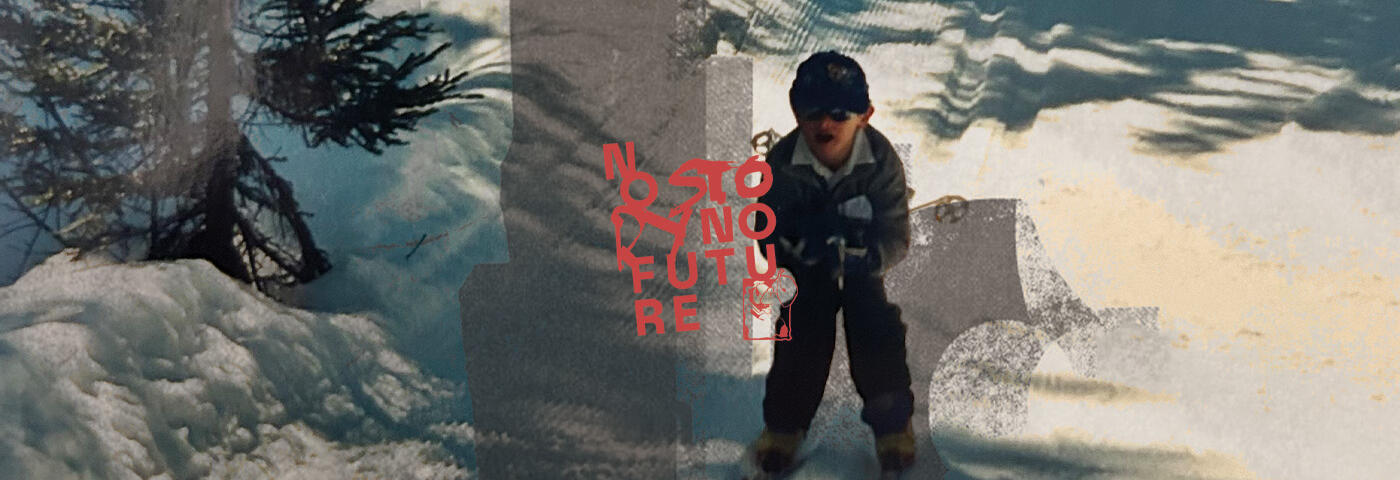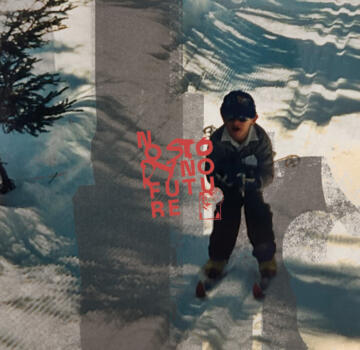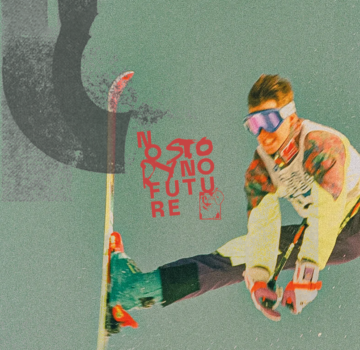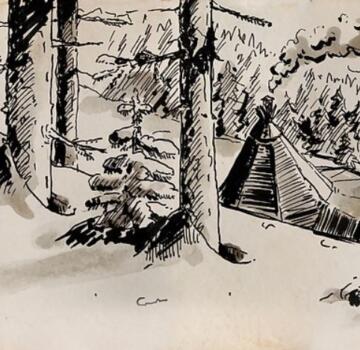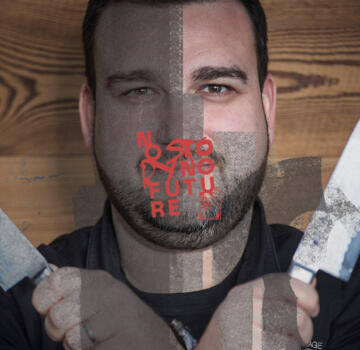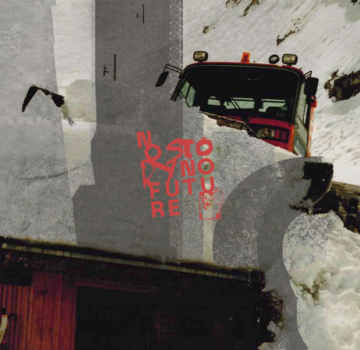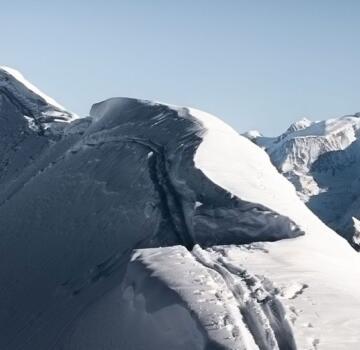Antoine Collomb-Patton
Originally from Annecy but a member of the La Clusaz Sports Club since childhood, Antoine Collomb-Patton thrilled us during the winter of 2024 by bringing home a bronze medal in cross-country skiing at the Winter Deaflympics in Turkey.
He became the first French athlete to win a medal in this discipline since the creation of the Winter Deaflympics in 1949. Oh, and one important detail: Antoine has been deaf since birth.
We had the chance to meet him despite his busy schedule, and we took the opportunity to ask him to share his life story and his experience in Erzurum last March. Between traditional schooling, soccer, cross-country skiing, and full-time work, Antoine certainly doesn’t have time to be bored.
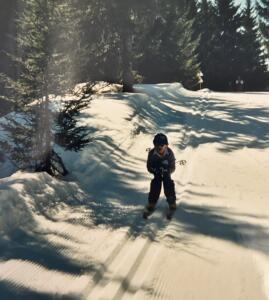
Antoine:
My cross-country skiing career started a bit late. I initially did alpine skiing and gradually transitioned into cross-country skiing. At first, it was mainly to build endurance in the mountains. Over time, I grew to love the competition in this discipline, and I performed well. In 2019, I was scouted by a coach from the French National Team. This allowed me to participate in training sessions and camps with the French Paralympic Team, and four months later, I was officially selected. That’s when my cross-country skiing journey truly began!
Antoine’s little extra touch: He trains not only with para-athletes but also with able-bodied athletes, which allows him to gain as much experience as possible in his category.
Antoine:
When I started performing well in cross-country skiing, I got to compete in many events with able-bodied athletes to gain even more experience. I also participated in all the national races in the para-skiing circuit, 2-3 European Cups, and then my first Winter Games—the Deaflympics in Erzurum, Turkey, in March 2024. There, I competed in four events: three individual races and one relay. It was in the classic sprint relay in cross-country skiing that I won the bronze medal. This was truly historic, as it marked the first medal for France since the creation of the Deaflympics in 1949.
It’s a real source of pride for me and an incredible experience to represent France. There were over 1,000 deaf athletes participating, and out of about 15 deaf cross-country skiers, only 2 were selected for the events. In addition to competing in the Games, I also won a 10km race with able-bodied athletes at the beginning of January. That gave me significant motivation just two months before the competition. It’s been the best season of my cross-country skiing career!
We also had to train for altitude, as the resorts in Turkey are situated over 2,000 meters above sea level, and the snowfall there was excellent this year. The conditions were ideal, and we gave it our all to leave without any regrets!
Often excluded from other Paralympic sports, deaf and hard-of-hearing athletes have their own competitions: the Deaflympics, held in both winter and summer.
Antoine:
It’s truly a great source of pride to have been able to participate in this competition because it’s the only one we have at the international level. At the Paralympic Games, there is no category for the deaf and hard of hearing—it’s a separate competition. It’s a political issue because, in some countries, being deaf or hard of hearing isn’t considered a disability, and they can’t agree internationally to integrate this category. In France, we can train with Paralympic athletes, but each group has its own competition. It’s a shame!
So, if the Winter Olympics are held in the French Alps in 2030, I wouldn’t be able to participate as things stand now. But one thing is certain—I’ll be there as a spectator to cheer on my friends. By then, I’ll be 34, so who knows where I’ll be at that point in my career. For now, my goal is to continue enjoying the sport and gaining experience with able-bodied athletes. I’d like to take on long distances and maybe even try a marathon. In any case, I’m aiming for the next Deaflympics in 2027 to try and do even better than this year!
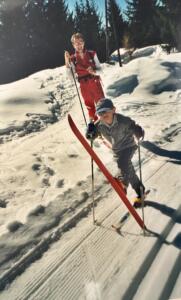
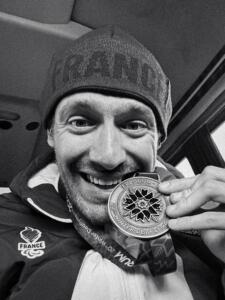
Cross-country skiing is not his only daily activity. He also has a job that takes up a lot of his time and requires good organization to fit in his training and, of course, his leisure activities.
Antoine:
Cross-country skiing takes up a lot of time in my weeks, especially with my job. I have to juggle between my job, training, and finding time to enjoy with my friends. It’s important to take time for yourself. As for my job, I’m a mold tool technician at Injection 74 in Alex. This means that I manufacture, repair, maintain, or modify molds for plastic injection in fields such as automotive, aeronautics, medical, cosmetics, food, and sports. It’s not exactly production work, but rather mechanical work. It’s quite intense, and I’ve been part of the company for 8 years now. The organization is strict on a daily basis. Until 2023, I worked full-time, but since then, my hours have been adjusted. I start very early in the morning, at 5 a.m., and finish at 1 p.m. This schedule allows me to have more time in the afternoon to train.
It depends on the time of year, but in winter, I finish work and go straight to train on the cross-country skiing trails at Les Confins or Beauregard. Summer is a bit different. I first take a nap so I don’t start training in the heat, then I go train. It’s intense, but it’s motivating. This year, with the Deaflympics, things were a bit different. I requested to work part-time to have more time to train. As a result, I was in better shape, I was able to attend more training camps, and it paid off!
Born deaf, Antoine has only 5% hearing. Yet, it is still possible to have a spoken conversation with him. He grew up among hearing people in a traditional school, which was his parents’ wish, so he could communicate easily with others.
Antoine:
I was born profoundly deaf, but they didn’t realize it until I was six months old. Until then, I didn’t cry or make any sounds, and my parents started to ask questions. We did numerous tests, including one with a specialist doctor where we were in a closed room with my parents and the music blaring. My parents’ ears were nearly blown out, but I didn’t say anything. That’s when they understood something was wrong. After several tests, they concluded that I was 100% deaf in my left ear and 95% deaf in my right ear. I got my first hearing aids when I was one and a half, and that’s when I discovered a whole new world. I was able to hear certain things, and my story really began the moment I could say my first baby words and experience life as a person with a disability. My parents had to think about my future and my integration into society. In the deaf world, there are two different languages: sign language, where we communicate only with hands and gestures, and the second language is Cued Speech (LPC), which is a language made up of vowels, and each hand sign corresponds to a consonant. It’s a code, but with lip reading. My parents chose this language for me, and they also learned it.
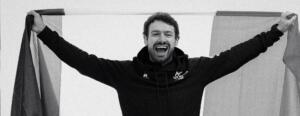
I have always lived in the hearing world, attending a traditional school rather than a specialized one. I was always in the front row and had an interpreter called an LPC Coder, who translated what the teacher and the students said. I also had extra support for vocabulary and French because I was somewhat behind. This was complemented by work with a speech therapist to improve communication, like everyone else.
After completing all my schooling in a traditional school, I was able to continue with a BTS in a work-study program. I don’t regret my parents’ choice at all—on the contrary. Being in a non-specialized school allowed me to build confidence, meet people, and communicate with those around me. What was difficult—and many people experience this—was the teasing about my deafness. But when you take a step back, you get used to it. Today, it’s no longer really a disability for me—it’s invisible, a handicap that you don’t see.
With a busy daily life between training, competitions, and work, Antoine still makes time to spend with his athlete friends from La Clusaz, like Gérard Agnellet, Jules Chappaz, and Hugo Lapalus. Between celebrations and soccer matches (his second passion) in Annecy or Lyon, he keeps his main goal in mind: continuing to enjoy cross-country skiing and participating in the next Deaflympics, which will take place in Pyeongchang in 2027, where we’ll follow and support him wholeheartedly!

